Soccer Basics - Referee Responsibilities
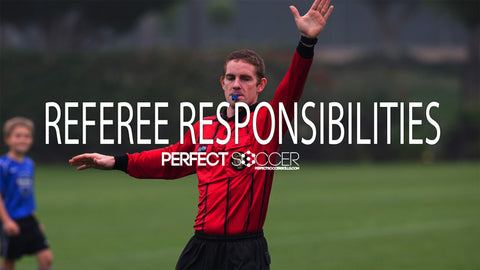
Whether you’re a coach, a player, or someone who wants to become a referee, it’s important to know what a ref’s responsibilities are. Not only will this help you to respect their jobs on the field, it will also give you a better understanding of the game itself.
Before referees take on this tough job, they should have a passion for the sport itself. For example, they should know about offensive strategies, defensive strategies, and the jobs of each position on the field. Without this knowledge, a ref can't do his or her job effectively.
Below you will find the most important aspects of a soccer referee’s job.
Knowing the Rules
Every referee needs to know the rules of soccer, or else games can get chaotic. Not only should referees know the rules so they can keep order, it also allows them to easily explain to players and coaches why they have blown their whistles.
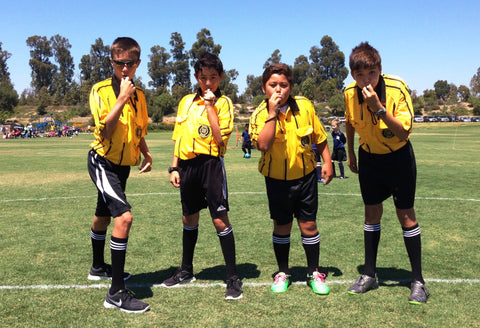
Even though many of the rules in soccer have remained unchanged over the years, there are some rules that are tweaked every year. Some rules are different from league to league and age level to age level, so it’s important that referees know the rules that should be followed in the specific game they are working. It is the ref’s responsibility to understand all of the changes and let everyone know about them as early as possible.
Enforcing the Rules
Obviously there’s much more to refereeing a soccer game than just knowing what the rules are. The real skill to refereeing is being able to quickly see when a rule has been broken and to stop the game immediately. Doing so will not only allow everyone to know who’s in charge, it also ensures that it is a fair game.
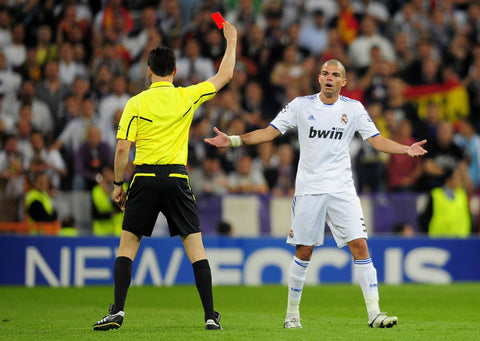
One of the biggest challenges for refs at every level is handling close calls. There are plenty of borderline calls that have to be made one way or the other in every game, and the very best refs are able to handle these situations consistently. Obviously these are the calls that upset players, coaches and fans the most, but at the end of the day all that matters is that the ref calls the game fairly.
Being Vocal
Referees don’t have to be extremely loud while on the field, but they do have to know the correct terminology and hand gestures to use and, of course, they need to be willing to use their whistles. It’s the ref’s job to keep control of the game, so being able to quickly explain each infraction is essential.
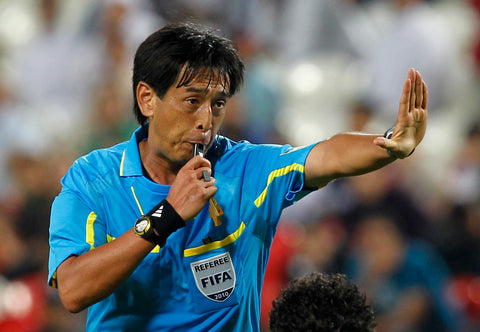
Referees also need to recognize the age and experience levels of the players on the field. With more experienced players, it’s easier to keep the flow of the game going since they will quickly understand any rules that are broken. However, will younger players, refs need to have patience and get the game going as quickly as they possibly can without confusing anyone.
The best refs are able to control their emotions no matter how frustrated the players, coaches and fans get. They stick to their guns on their calls and don’t change the way they ref simply because others don’t agree with their calls. We've pointed out that soccer players need to stay composed, and the same is true for refs.
Not Being the Focal Point
While it’s important that everyone on the field knows who’s in charge, referees also need to realize that the game is for the teams and the fans. Unfortunately, some refs forget this at times and make the game more about themselves by blowing their whistles more often than they need to.
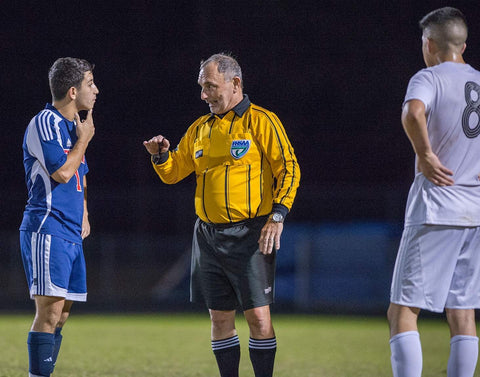
It’s okay for referees to take some time to explain why a player was penalized, but they should never hold up the game longer than is required. The sign of a good ref is when they are able to keep the flow of the game going no matter how many fouls they call.




Leave a comment